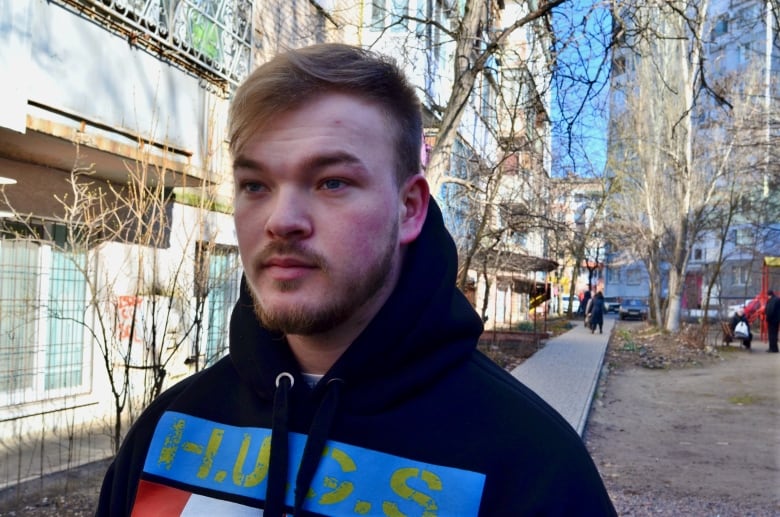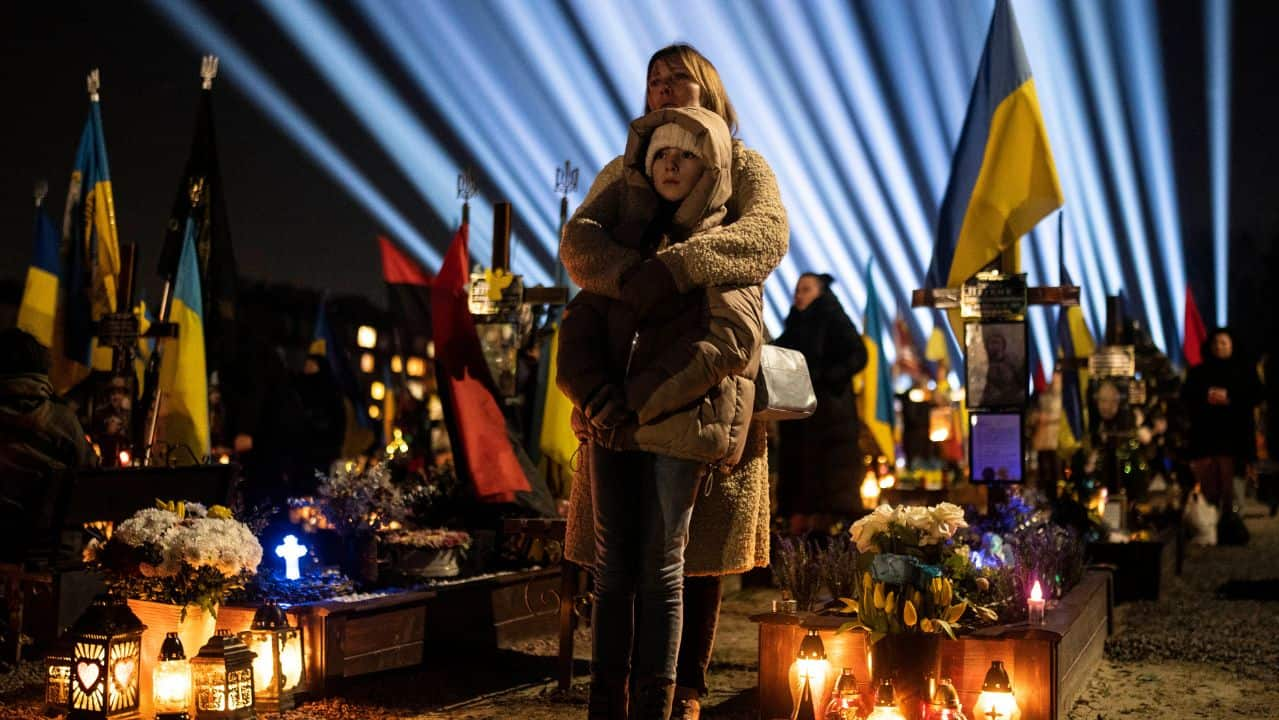There’s a thoughtful silence that typically follows when you ask people in Ukraine where they were and what they were doing the day Russia dropped the pretence and launched an all-out invasion.
It’s almost as if they haven’t had time to think about it.
Or maybe they don’t want to remember that moment — as if looking back would somehow prevent them from moving forward.
When they do get around to answering the question, some Ukrainians in their 20s and 30s compare it to the day the World Trade Center towers collapsed.
CBC News has been on the ground covering Russia’s invasion of Ukraine from the start. What do you want to know about their experience there? Send an email to [email protected]. Our reporters will be taking your questions as the one-year anniversary approaches.
They refer to Feb. 24, 2022 as their “9/11 moment” — a temporal fork in the road that makes it obvious to everyone that the world has changed irrevocably.
But there’s a difference between how the West recalls 9/11 and how Ukrainians remember the start of Russia’s war.
Ukrainians will tell you the invasion began not a year ago today but in 2014, with Moscow’s annexation of Crimea. The legions of Canadian, American, British and Europeans who rushed to Ukraine’s aid, meanwhile, more often compare the Russian onslaught on Feb. 24, 2022 to the indelible moment when the U.S. and its allies entered their two-decade-long “war on terror.”

Still, for senior lieutenant Khrystyna “Kudriava” (her nom-de-guerre, meaning “curly hair”), just 28 and the second-in-command of a Ukrainian National Guard mortar unit, the events of a year ago had that life-altering quality.
At the time, she was at the front in the eastern Donbas region, where the intermittent shelling of the previous weeks was growing louder and more intense.
Khrystyna was on combat duty that morning when intelligence revealed Russian tanks and infantry were on the move. Their position was plastered by Russian BM-21 GRAD rocket artillery, effectively pinning them down.
“For the first time in 10 years, I allowed myself to swear and curse,” Khrystyna told CBC News. “Before that moment, I assumed that my vocabulary was rich enough to express myself in every possible situation.”
As the rockets rained down, and in anticipation of being overrun, she began deleting data from her phone.
Once done, she said, she wondered about her family. “Should I write to my mom? What should I write to her? And maybe, in this kind of situation, do I even need to write to her?”
Khrystyna said she believes her world changed in 2014. People in the West are just catching up, she said.
Many Ukrainians would agree. But it’s only been over the past year that millions of people have been driven from their homes and entire cities have been laid waste by the biggest armed conflict Europe has seen in eight decades.
For MacKenzie Hughes, the world-shifting events of a year ago came to him in an electronic trickle nine time zones away from the desperate, pitched battles in Donetsk and Luhansk.
Hughes, 20, now a volunteer in Ukraine with the Canadian charity H.U.G.S., was working construction in Calgary at the time. He was laying out a deck when heard about the invasion through text messages — one of which was from his father, Paul, who is also in Ukraine with the same charity.

“I was living my life,” he told CBC News in a recent interview in Kherson, where the group was delivering food to ruined villages outside the recently liberated city.
“I was working, living a regular life. After work, I’d go see my friends, play some pool, go swimming or something, you know, hanging out by the river.”
Within days of the invasion, Ukrainian President Volodymyr Zelenskyy issued a plea for foreigners to come and help beat back the Russians. Hughes joked with his friends about signing up.
“So it looks like it wasn’t actually joking,” he said.
Within weeks, he was on the ground in Ukraine with his father, subjecting himself to some of the same frontline risk that Khrystyna had long faced.

In a sense, he had caught up with her. And while he chose not to serve in a military capacity, Hughes has still gotten an eyeful of the kind of brutality meted out by Russian soldiers.
He said he’s toured abandoned interrogation and torture cells in formerly occupied territories. The moment that sticks with him was watching two grandmothers beat each other over a loaf of bread.
In Ukraine, fears are high that Russia could ramp up fighting as Ukrainians reflect and remember those they lost on the one-year anniversary of the invasion.
He’s a long way from the peaceful streets of Calgary.
But if there’s one thing Hughes and Khrystyna share now, other than location, it’s the sense of purpose the last year has given them.
“I think I found my calling here in Ukraine,” said Hughes. “I actually want to live in Ukraine after the war and see how it flourishes, and the way it gets rebuilt. Because I truly think that this is a beautiful country and it’s going to be even more beautiful after the war is done.”
There is still a long way to go between now and that moment.






More Stories
What Trudeau’s podcast appearances say about the Liberals’ next ballot box question
ANALYSIS | In videos and podcasts, Poilievre and Trudeau are eager to explain themselves — at length | CBC News
South Africa celebrates 30 years since end of apartheid, but discontent grows – National | Globalnews.ca